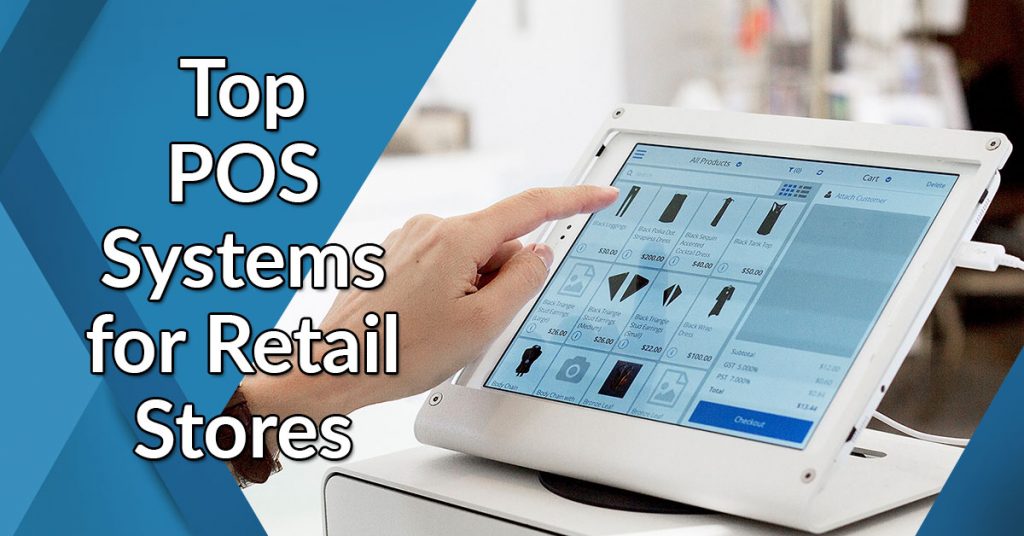The retail point of sale system is used to track the inventory and sale of goods in a store or business. The retail point of sale system records transactions done by customers using credit cards, debit cards, checks, cash, electronic benefit transfer (EBT) cards, gift cards and other mediums. It also helps manage customer information like billing, shipping and returns.
What is a point of sale?
When we talk of a retail point of sale system, we generally refer to the register or cashier at which sales transactions are done on site in shops and stores. A computer system with a POS software program, a barcode scanner and a printer, cash drawer and credit card reader is all that it takes to create the complete point of sale system. It not only records sales transactions but also provides customers with options like “Cash Back”, “Split Check” and pre-authorizing the transaction for fast processing.
Why a retail point of sale system?
Retail supply chain management requires a POS system to produce an accurate view of actual stock in hand, orders placed and money received through cash or credit card. A person using the point of sale system is called a user. Each transaction made on the POS consists of data that can be put to use in effective stock management.
Most POS systems are used in retail businesses like supermarkets, department stores, retail clothing or electronic shops. The point of sale system helps track the sales in real time and gives an idea about where to place products for better display so that more customers can view them easily. It also provides information on if the stock needs to be reordered or placed on sale. A POS also comes in handy to send invoices and receipts via email or SMS to customers.
POS system is an affordable option for businesses that want their sales details immediately after a transaction is made instead of waiting for the days end to release figures. It allows retailers to check equipment, inventory levels, customer preferences and employee performance.
In a nutshell, the main reason why retail businesses use POS system is to provide information on customer behavior and buying trends. The right data can be used for business development and expansion. It also generates reports like daily sales reports, monthly summaries or detailed transaction logs. Merchants can quickly access these records anywhere using any electronic device with internet access.
Data security is another reason to use POS system. You can protect your investment by backing up customer, product and transaction data onto the cloud. The information cannot be tampered with or deleted during a disaster situation. If the point of sale machine fails, you can always turn to back up copies stored on remote servers for assistance. It’s an effective way to protect your business from any data loss.
The POS system is beneficial because:
- It helps in better customer service and creating a more personalized shopping experience. It provides information about customer buying habits that can be used for future discounts and promotions. Customers feel like you care about their needs when they get receipts by email or SMS after a transaction. It’s an effective way to promote your business and reach a larger customer base too.
- It helps in faster transactions, increased productivity and better inventory management. The automatic processes performed on a POS system save time and let your employees focus more on serving customers instead of worrying about the checkout procedures. Your store doesn’t have to stay open late just because there’s a long line of customers waiting outside. It also eliminates the hassle of managing cash and receipts manually, which is a time consuming task.
- It helps in customer data analysis, market research and reporting. Data can be checked immediately after a transaction has been done at the POS. You get to know how many transactions were made, their average value and what products were sold too. Reports can be generated for every day, month or year depending on the requirements of the business owner. It’s helpful to find out if your business is making a profit or not. You can also keep track of employee performances via reports generated by the POS system.
- It reduces overhead costs because you don’t have to hire cashiers and billing clerks. POS system works 24/7, which means you can operate your business even if you’re out of town. The point of sale machine will perform various tasks for you like recording all transactions made by customers in the store or online, generating reports and sending receipts after a transaction is complete. It pays off to invest in a POS system because your business can continue to grow even when you’re traveling or taking a break.
- It provides greater security for employees and clients. Data protection is a major aspect of a POS system, which aims to keep sensitive information in the hands of only authorized personnel. It’s important to use this feature especially in small businesses or big corporations where information is likely to fall in the wrong hands. Data protection ensures that all data can be backed up remotely in case of system failure. It also lets you track ‘what if’ scenarios like trying out different discounts and prices for specific products by merchants. You can monitor what works best for your business, which means you don’t have to worry about increasing your sales and customer satisfaction.
The above mentioned reasons should be enough to convince business owners and managers to invest in a POS system. It provides numerous benefits, which is why the point of sale system has become an integral part of every modern retail store.
